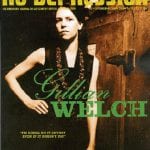“what’d I Say”: The Atlantic Story 50 Years Of Music
Record companies face innumerable obstacles to survival. Surviving (much less prospering) for 50 years with the same person in charge is unprecedented. Ahmet Ertegun beat those odds by turning a small, independent label into one of the world’s major record companies. Atlantic Records set the standard in ’50s rhythm & blues and ’60s soul music, its distinctive red and black label signifying quality to musicians and fans alike with such artists as Ruth Brown, Solomon Burke and Wilson Pickett.
The company’s achievements are thoroughly and entertainingly documented in “What’d I Say”. Filled with more than 900 photographs, the coffee-table book presents an oral history of Atlantic with contributions from Ertegun, his artists, and partners Jerry Wexler and Nesuhi Ertegun, his older brother who built the company’s jazz roster into one of the world’s best.
Essays by nine writers, including Lenny Kaye and Robert Gordon, effectively examine different eras of Atlantic’s history and offer an outsider’s perspective on the label’s influence and impact. “What’d I Say” is hefty in size (nearly 10 pounds) and price ($75).
At the center of the action, from Ray Charles to Sugar Ray, is Ertegun, a son of the Turkish ambassador to the United States, who fell in love with American jazz and R&B. He started Atlantic in the fall of 1947 at age 24 with a $10,000 loan from his dentist.
Atlantic began at a time when records meant 78s and segregation was legal in the United States. “We were just trying to create our own mix of music that we enjoyed,” explained Ertegun, who even wrote for and produced his artists in the early years. That mix was a key to Atlantic’s longevity and stemmed from Ertegun’s belief in a diversified roster of artists. It was a company where Abba, Doug Sahm and Charles Mingus could coexist alongside the Tramps, Willie Nelson and Led Zeppelin. Atlantic’s ability to adapt to the changing music scene of the 1960s by signing such acts as Cream, Aretha Franklin and Buffalo Springfield enabled it to survive while other independents were sold or went out of business.
Ertegun, now 78, combined a businessman’s savvy and a fan’s enthusiasm in running the label. He recognized early that commercial hits — from “Mack The Knife” by Bobby Darin to Cracked Rear View by Hootie & the Blowfish — provided the capital to subsidize Atlantic’s more adventurous pursuits in other areas, such as jazz and world music.




